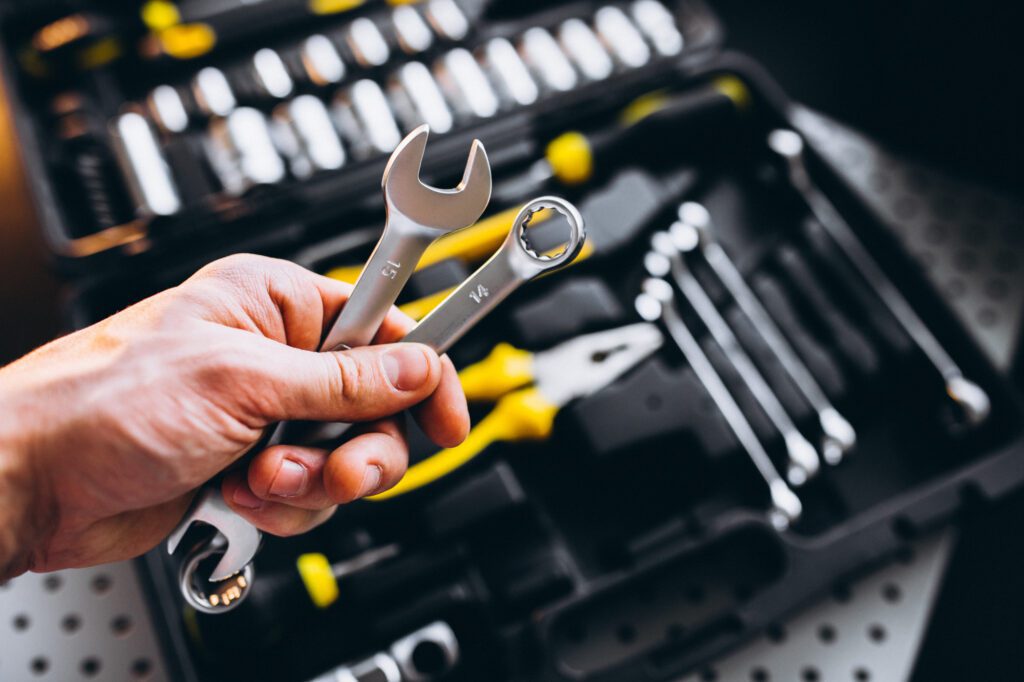If you enjoy working with your hands, solving problems, and love vehicles, becoming a mechanic might be the perfect career for you. Whether it’s fixing engines, repairing brakes, or working on modern hybrid systems, skilled mechanics are always in demand. This guide will teach you exactly how to become a mechanic, from learning the basics to getting jobs and promoting yourself on platforms like LinkedIn, Upwork, and Fiverr.
Why Choose a Career as a Mechanic?
Mechanics are important in keeping vehicles and machinery running smoothly. From cars and motorcycles to trucks and industrial equipment, everything needs maintenance. Here’s why it’s a smart career:
- High Demand: Every vehicle needs repair and service.
- Job Security: People will always need mechanics.
- Hands-On Work: Perfect for people who enjoy physical work.
- No Expensive College Degree: You can start with a diploma or certificate.
- Good Pay: Skilled mechanics can earn a stable income or even open their own shops.
1. Understand What a Mechanic Does

Before starting this career, know what mechanics actually do. A mechanic’s job typically involves:
- Diagnosing vehicle problems
- Repairing engines, brakes, exhaust systems, and more
- Performing routine maintenance
- Using tools, computers, and scanners
- Working in garages, workshops, or on-site
There are different types of mechanics:
- Auto Mechanics – work on cars and small vehicles
- Diesel Mechanics – focus on trucks and heavy equipment
- Motorcycle Mechanics – specialize in bikes and scooters
- Aircraft Mechanics – maintain airplanes (requires extra training)
- Industrial Machinery Mechanics – work on factory equipment
Read more: How to Become a Pilot in 2025: Step-by-Step Guide for Beginners
2. Get Your Basic Education
To become a mechanic, you’ll need at least:
- A high school diploma or equivalent
- Basic understanding of math, physics, and mechanical systems
Many high schools or technical schools offer automotive programs. If not, you can explore online platforms like:
- Udemy – Learn basics of auto repair and diagnostics
- Coursera – Offers automotive systems and electrical courses
- Khan Academy – Free learning in physics and math foundations
3. Join a Vocational or Technical Training Program
Most mechanics start with vocational training to learn hands-on skills. These programs teach:
- Engine systems
- Electrical and electronic systems
- Suspension and brakes
- Computer diagnostics
- Safety protocols
You can find local schools or explore online certifications through:
- Alison – Offers free auto mechanic basics
- Skillshare – Learn car repair with real-world projects
Look for programs that offer a certificate or diploma in automotive technology.
4. Gain Hands-On Experience Through Apprenticeship

The best way to learn is by doing. You can gain experience by:
- Working as a helper in a garage
- Joining an apprenticeship under a certified mechanic
- Volunteering in workshops or auto part stores
Apprenticeships usually last 1–3 years and teach:
- Real-time problem-solving
- Communication with clients
- Advanced repair techniques
- Workshop safety
Search for apprenticeships on platforms like Indeed, Glassdoor, or ask local garages directly.
Read more: How to Become a Professional Electrician in 2025 (Step-by-Step Career Guide)
5. Get Certified as a Mechanic
After your training and apprenticeship, it’s important to get certified. Certification shows employers and clients that you’re skilled and trustworthy.
Top certifications include:
- ASE Certification (Automotive Service Excellence) – industry standard in vehicle repair
- EV Technician Certification – if you plan to work on electric vehicles
- HVAC and AC Systems Certification – great for working on car air-conditioning systems
You can prepare for certification using online resources like:
6. Build Your Mechanic Toolbox

The right set of tools is crucial for any mechanic’s success. Start building your own tool kit that includes:
- Socket sets and ratchets
- Wrenches and pliers
- Screwdrivers
- Jack stands and hydraulic lifts
- Code readers and scanners
- Multimeter (for electrical diagnosis)
- Safety gear (gloves, glasses, boots)
You can buy affordable and quality tools from websites like Harbor Freight and Home Depot.
7. Choose a Specialization
To earn more and stand out, consider choosing a specialty:
- Hybrid/Electric Vehicle Mechanic – In-demand as more people buy electric cars
- Transmission Specialist – Complex systems, high-paying
- Performance Mechanic – Tuning sports cars, race cars
- Fleet Mechanic – Maintain commercial vehicles like delivery vans
The more advanced your skills, the better your opportunities.
Read more: How to Build a Personal Brand That Gets You Hired in 2025
8. Start Finding Mechanic Jobs

Once trained and certified, it’s time to get hired. You can apply to:
- Car dealerships
- Repair shops
- Trucking companies
- Construction firms
- Government vehicle fleets
Search job openings on:
- LinkedIn – Build your profile and apply directly
- Indeed – Daily mechanic job listings
- Upwork – Freelance or mobile mechanic gigs
- Fiverr – Offer services like diagnostics, inspections, or consultations
9. Build Your Online Presence
Having a digital footprint helps attract clients and employers.
- Create a professional LinkedIn profile with your certificates and experience
- List your mechanic services on Fiverr and Upwork
- Join mechanic communities on Reddit or Facebook Groups
- Create a Google My Business page to appear in local search
Post photos of your repairs, before-after transformations, and client reviews to boost trust.
10. Keep Learning and Growing
Vehicles are evolving. Today’s cars have sensors, computers, and electric powertrains.
Keep learning with platforms like:
- edX – Advanced courses in electronics and engineering
- FutureLearn – Explore smart vehicle technology
- YouTube – Stay updated with how-to repair videos and trends
Also, attend trade shows, join professional forums, and network with other mechanics to stay ahead.
Average Salary of a Mechanic in 2025

Salaries depend on location, specialization, and experience, but here’s an average range:
- Apprentice Mechanic: $25,000–$35,000 per year
- Certified Mechanic: $40,000–$60,000 per year
- Master Technician or Specialist: $70,000+
- Freelance or Shop Owner: $100,000+ (based on clients and scale)
Specialists in hybrid, diesel, and electric vehicles often earn more due to limited competition.
Read more: How to Become a Video Editor in 2025: A Complete Beginner’s Guide
Final Tips to Succeed as a Mechanic
- Be Reliable: Always meet deadlines and maintain quality
- Stay Organized: Keep tools and your workspace clean
- Be Honest with Clients: It builds trust and repeat business
- Keep Learning: The more you know, the more you earn
- Network: Join mechanic groups and stay active online
Conclusion: Start Your Mechanic Journey Today
Learning how to become a mechanic is the first step to a long-term, rewarding career. Whether you want to work for a company, start your own shop, or offer freelance services online — the opportunities are endless.
With hands-on skills, a strong online presence on platforms like LinkedIn, Fiverr, and Upwork, and the right training, you can turn your passion into a successful profession.


